China explosions: Dozens killed in Tianjin port blasts
- Published
Drone footage showed the devastation caused by the explosions
The massive explosions in China's northern city of Tianjin are now known to have killed at least 50 people.
More than 700 have been injured and hospitals are struggling to cope with the number of casualties.
The blasts, at a warehouse storing toxic chemicals, destroyed tower blocks and burned out thousands of cars. The fireball could be seen from space.
Twelve firefighters are among those who lost their lives; 36 of their colleagues are still missing.
Tianjin is one of China's most important industrial centres, and one of the busiest ports in the world.
President Xi Jinping has promised a thorough investigation into what happened and "transparent information disclosure to the public," Xinhua news agency reports, external.
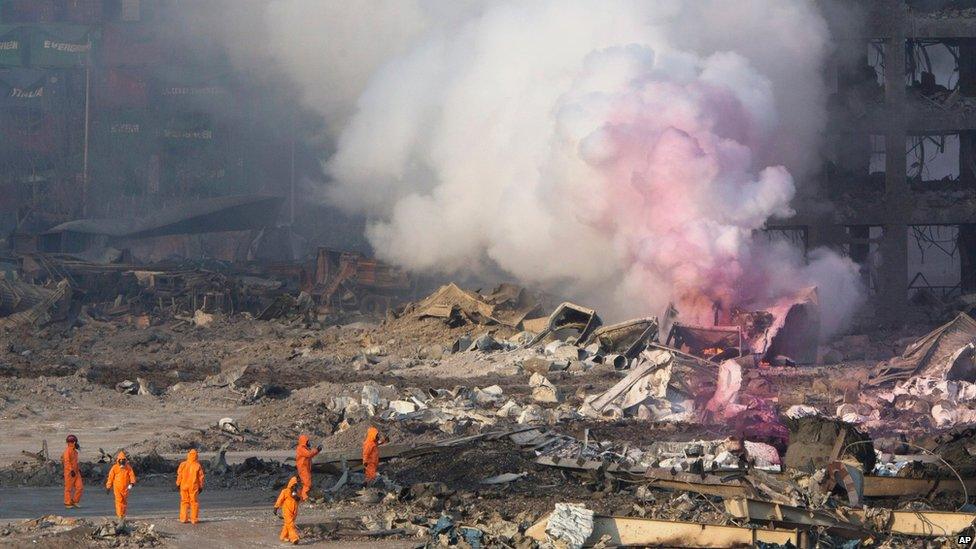
Firefighters at the scene were clad in protective gear
The first explosion occurred at about 23:30 local time (15:30 GMT) on Wednesday in Tianjin's Binhai New Area, a vast industrial zone which houses car factories, aircraft assembly lines and other manufacturing and research firms.
The blast was followed seconds later by another, more powerful blast, and a series of smaller explosions.
Broken and buckled shipping containers litter the site and vast areas of the port have been devastated.
Buildings within a 2km radius (1.5 miles) had windows blown out and office blocks were destroyed.
The impact of the blasts could be felt several kilometres away, and was detected by a US Geological Survey monitoring unit in Beijing 160km (100 miles) away.
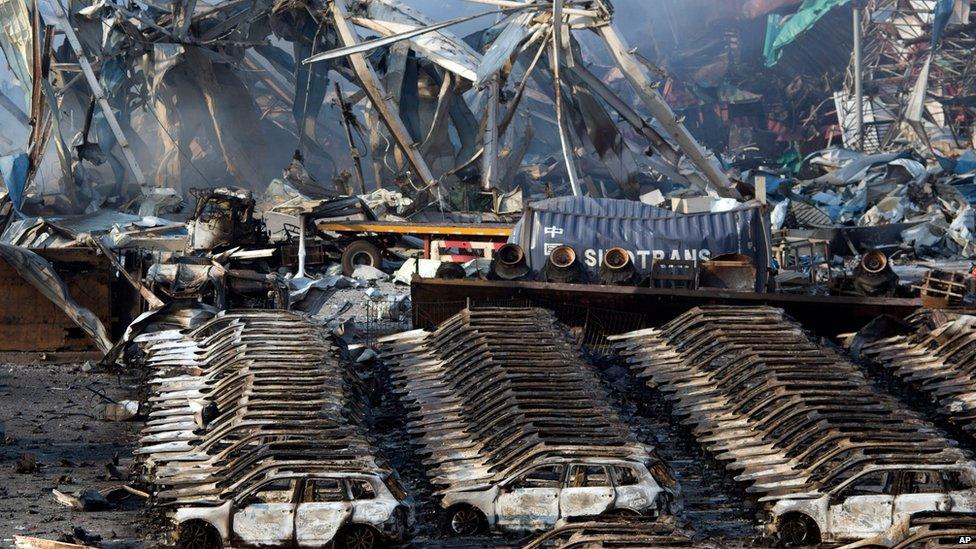
The explosions left thousands of cars at the port burned out
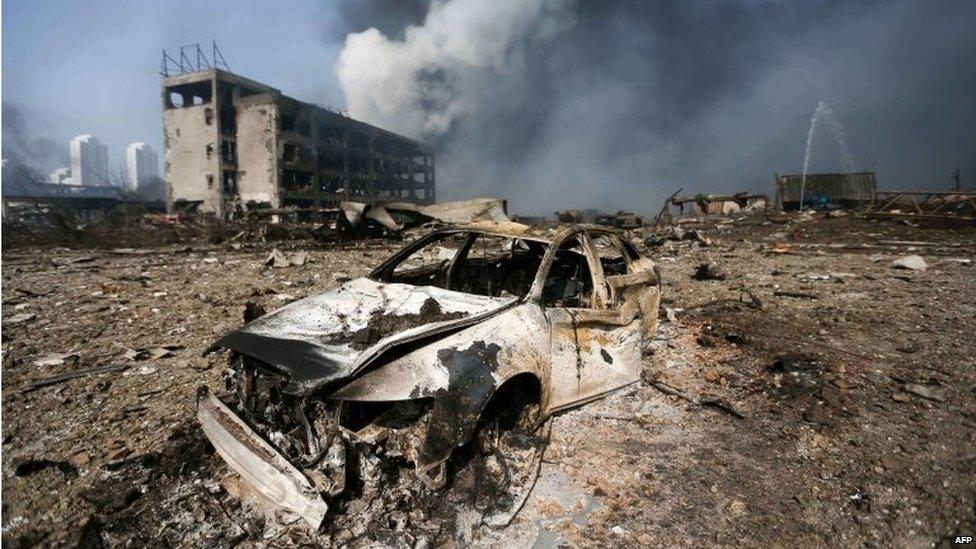
Buildings within a large radius were destroyed
State media reported that firefighters arrived at the port at 23:06 local time (15:06 GMT) as containers were on fire; another batch of firefighters arrived at around 23:16, 14 minutes before the first explosion.
Reports in Chinese media said the blasts happened after a shipment of explosives detonated in a warehouse owned by Ruihai Logistics, a company that specialises in handling dangerous and toxic chemicals.
State broadcaster China Central Television (CCTV) said at least one person from the "relevant company" had been detained for questioning.
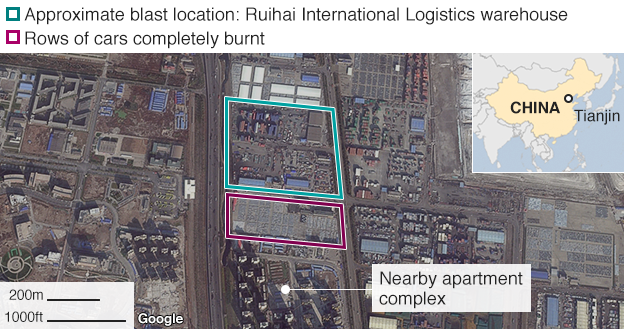
The warehouse was designed to store chemicals including sodium cyanide, butanone and toluene diisocyanate, as well as compressed natural gas and other flammable substances.
The head of Tianjin's environmental protection bureau, Wen Wurui, said pollution levels were being monitored.
"It would be harmful if you breathe in [this toxic air] for a long time," he said.
"But at present, it has not exceeded [the standard] too much based on our monitoring."
The BBC's John Sudworth reports from inside the blast zone on Thursday
The BBC's John Sudworth, in Tianjin, said thick, acrid smoke can be seen still billowing from the site, and the burning taste hangs heavy in the air.
"I heard the first explosion and everyone went outside, then there was a series of more explosions, windows shattered and a lot of people who were inside were hurt and came running out, bleeding," 27-year-old Huang Shiting, who lives close to the site, told AFP.
Injured 10-year-old Mei Xiaoya told AFP that she and her mother were turned away from the first hospital they went to, seeking treatment, as it was full.
"I'm not afraid, it's just a scratch," she said, "but mum was hurt badly, she couldn't open her eyes."
A local resident captured the blasts in dramatic mobile phone footage
The blast ripped apart a nearby dormitory for migrant workers, who were forced to flee the collapsing building.
"I rolled off the bed after the first shockwave hit, so I scrambled to run for my life," said resident Dan Agio.
"When I reached downstairs the second blast happened. It's as if the sky collapsed. In a blink of an eye, the roof fell."
Explosions survivor "The second blast blew me away"
The editor of the BBC's Chinese Service, Raymond Li, points out that almost 24 hours after the explosions the cause still is not known.
Just a few days ago city officials visited the industrial site to discuss safety standards, he says.
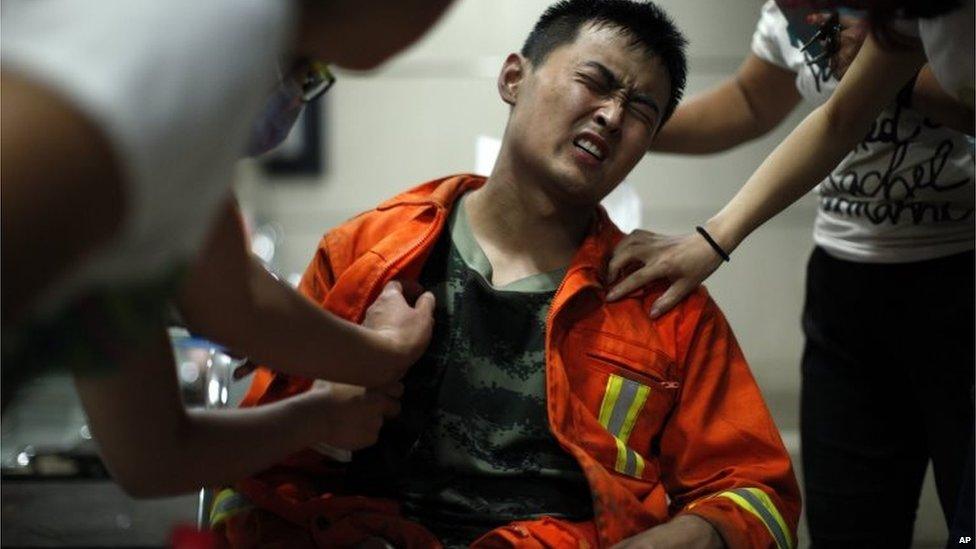
Firefighters are among the dead and injured
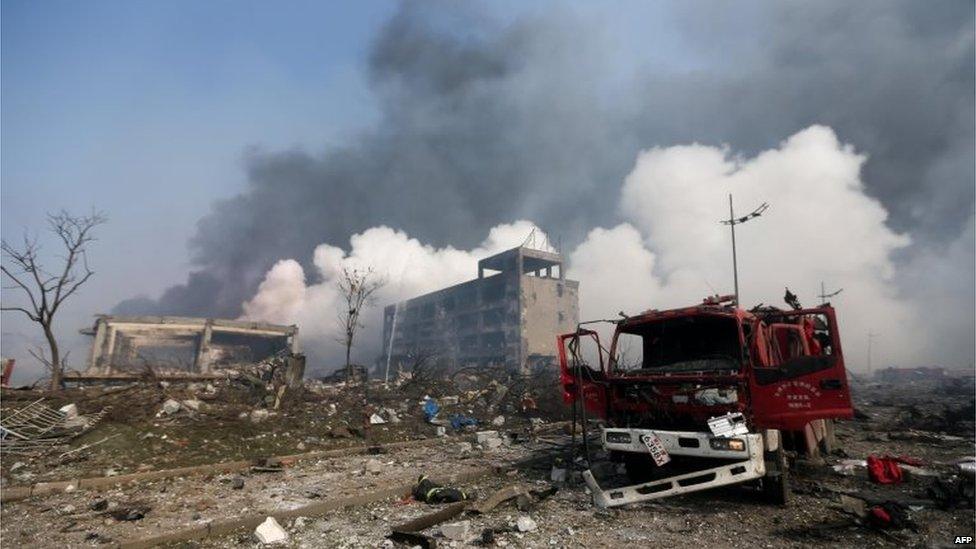
The fire service was already at the scene at the time of the explosions, reports say
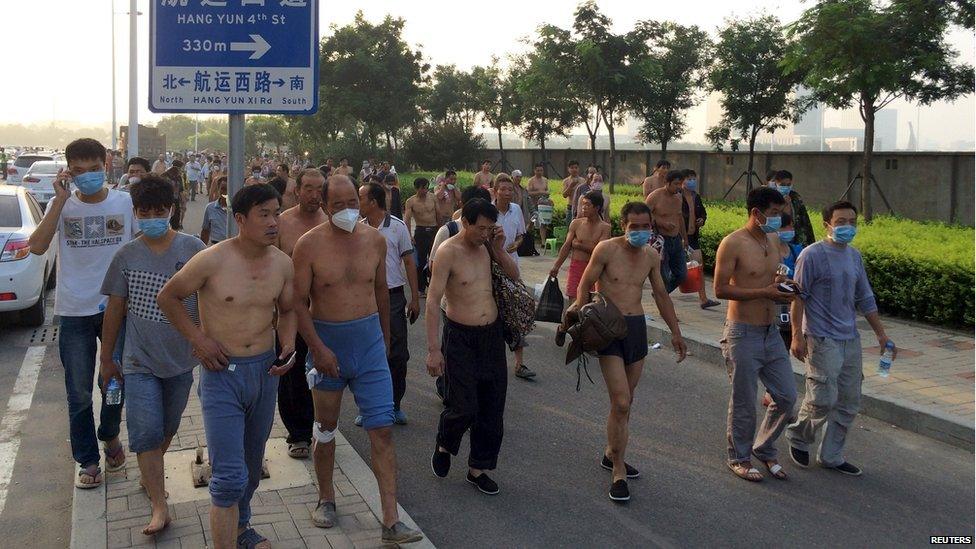
Residents of the Binhai New Area have had to leave their homes for temporary shelters